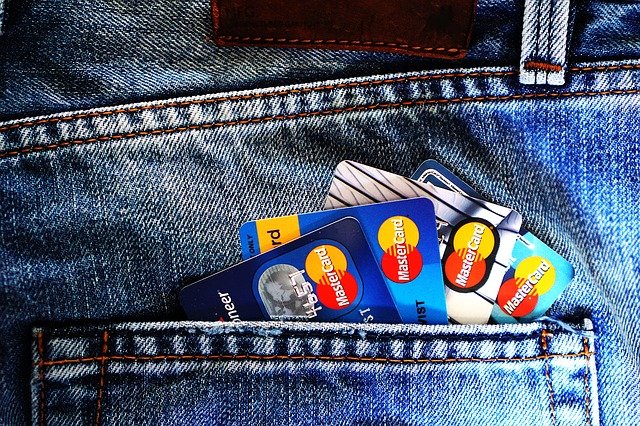What is a Credit Score and How Does It Affect Your Financial Health?
A credit score is a four-digit number determined by your creditworthiness that tells banks and lenders how reliable a person is in paying off debts.
This four-digit number is administered by the Credit Bureau of Singapore (CBS) and is between 1,000 and 2,000 (AA rating 2,000 is the best). It is a summary of your creditworthiness across different banks and financial institutions.
A good credit score is vital to having a stable financial life and achieving your long-term financial goals. Your creditworthiness is an important factor that banks and financial institutions consider when applying for credit cards and loans.
You can take advantage of a high credit score to negotiate better interest rates on loans or apply for credit cards with better rewards, resulting in significant savings over time.
Avoid these five common mistakes that can ruin your credit score, whether you already have a decent score or are building your bankroll.
1. Have too many credit cards or loans at the same time

Using a credit card responsibly or paying back a loan are easy ways to build a loan quickly. However, too many open credit lines are a red flag indicating fiscal irresponsibility towards financial institutions. As a general rule, you should avoid more than four or five credit cards and try to pay off any outstanding debts before borrowing any more.
If you owe money to multiple financial institutions, consider applying for a Debt Consolidation Plan (DCP). A DCP allows you to combine multiple outstanding debts into one loan that is easier to repay.
2. Apply for multiple lines of credit one after the other
Another risky behavior is to apply for too many lines of credit at the same time. Every time you apply for a new credit card or new loan, the relevant financial institution will send a request to CBS about your loan.
These inquiries are recorded and usually shown negatively in your credit history.
ALSO READ: What Really Happens When You Skip Credit Card Bills, Loans, and BNPL Payments
Too many over a short period of time means to lenders that you want to take on a lot of debt, which will negatively affect your score.
To be on the safe side, carefully consider your options before applying for a credit card or loan, and make sure that any existing lines of credit that you are not using are closed.
3. Your debt-to-income ratio is too high

Keeping track of your debt to income ratio is a great way to set a budget and keep your credit healthy. To calculate this ratio, simply divide your monthly debt payments by your monthly take-away payment. Of course, the lower this number, the better off you are. Here is an example of how to calculate your debt to income ratio.
A classic danger in trying to get out of debt is to use an increase in income to take on more liabilities. For example, if someone with a significant debt gets a promotion with a raise, they move into a nicer apartment or buy something more expensive.
To reduce your debt to income ratio, tackle existing debts as soon as possible and use income increases to eliminate liabilities instead of adding them up.
An institutionalized application of this ratio is the Mortgage Servicing Ratio (MSR), which Singapore lenders use to assess whether someone is qualified for a loan. MSR refers to the portion of a borrower’s gross monthly income that is used to pay back home loans, including the loan currently being applied for.
ALSO READ: Credit Score – Facts, Myths & A Case Study
Before financial institutions provide a loan to an applicant, they must ensure that a borrower’s MSR is less than 30 percent according to the following formula:
(Monthly repayment installments for all real estate loans / gross monthly income) x 100 percent ≤ 30 percent
Keeping your debt to income ratio low will keep your creditworthiness healthy and help you internalize good financial habits for achieving long-term goals like buying an HDB home.
4. Late paying your loans and defaulting on payments
This may seem like an obvious danger, but late payments and late payments have a very negative impact on your creditworthiness. Young adults who are just beginning to build their creditworthiness often overlook a payment here and there.
[[nid:516458]]]
To avoid accidentally forgetting to pay a bill, you can set up automatic payment on your credit card or bank account to make sure you pay on time.
Debt failure is the worst thing you can do for your creditworthiness.
While bad grades like late payments or too many lines of credit can be mitigated in less than 12 months, standard records degrade your credit score for much longer.
Standard “negotiated” or “fully settled” records are displayed for three years, while pending or “sold out” records can remain indefinitely.
5. Have no credit
You might think that the best solution to avoiding bad credit is to never open a credit card or take out a loan.
Unfortunately, this off-the-radar status means financial institutions have no clue as to whether you are a reliable borrower. So if you apply for a loan or a credit card, you will likely get rejected.
ALSO READ: 5 Ways To Get The Highest Credit Score In Singapore
Worse, when you need a loan, you have to rely on institutions with adverse interest rates like licensed moneylenders.
To start building your bankroll responsibly, consider applying for a credit card and earning cashback rewards or airline miles as you develop your credit history.
This article was first published in ValueChampion.
